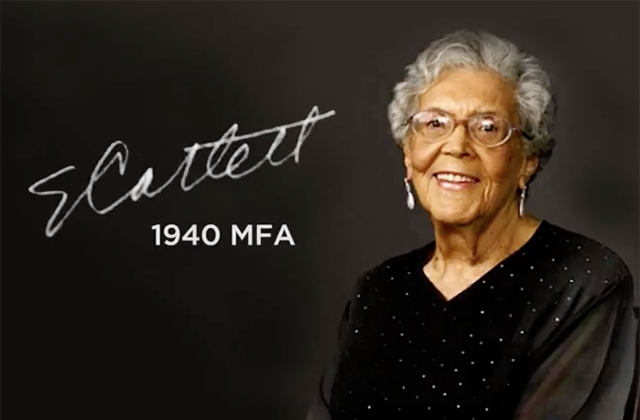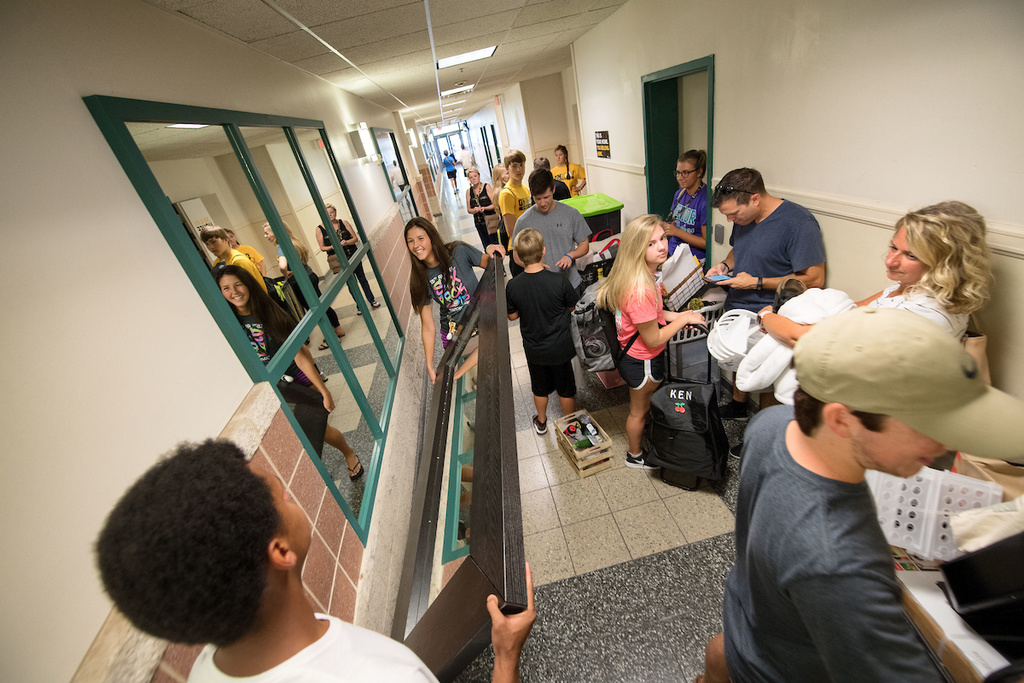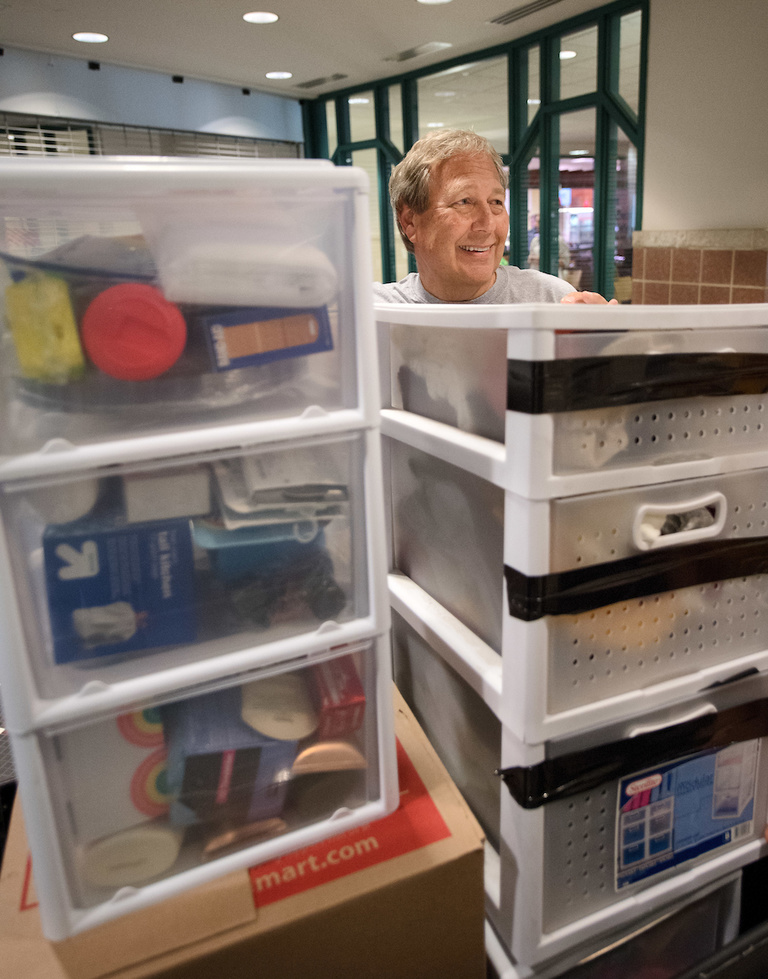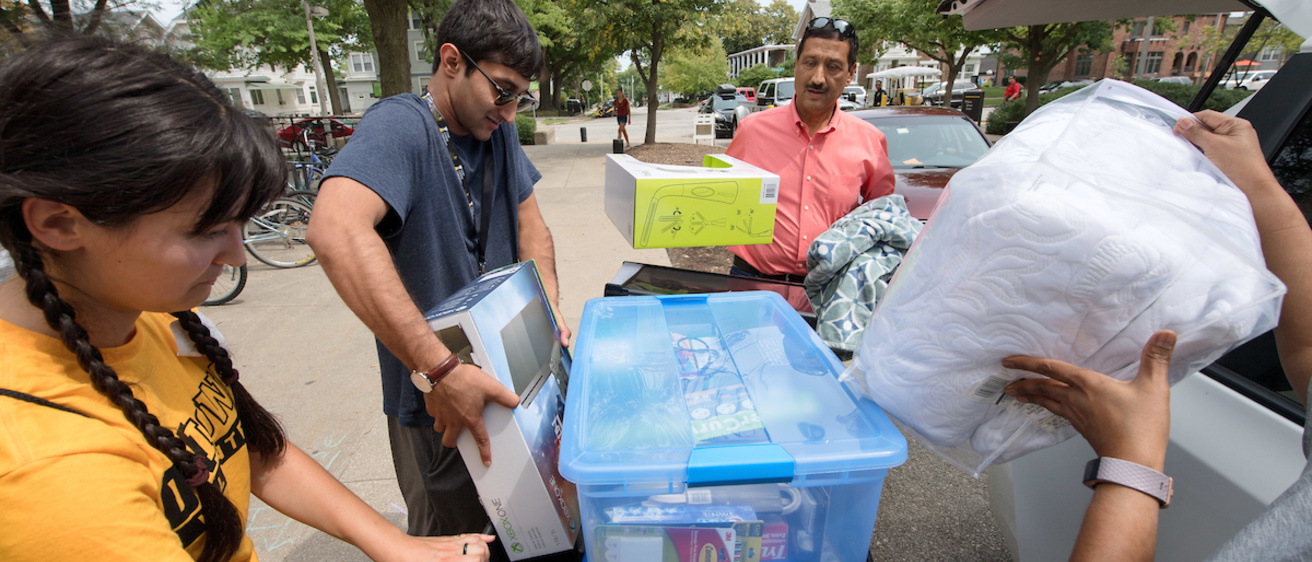The ground-floor room on the north side of Currier Hall was a beehive of activity Tuesday.
Moms and dads scurried about, unpacking school supplies, hanging clothes, making beds. Three young women from Wheaton, Illinois—friends from high school and now roommates at the University of Iowa—watched it all unfold in one corner of the suite with a mix of amusement and anxiety.
Elizabeth Catlett: New residence hall namesake

Elizabeth Catlett, who attended the UI from 1938 to 1940, was one of the university’s first three MFA graduates and was the first African American woman to receive the degree. Iowa's new residence hall is named in her honor.
The first-year students were moving into a triple room at Currier and bubbled with excitement as they thought about the start of their educational journey.
But first, there were practical matters to consider.
“I don’t know how to do my laundry,” said Alysa Kuhn, an incoming student who plans to study business.
“That’s my fault,” admitted her mother, Lori Kuhn, to giggles from the group.
This week, nearly 6,700 students—from first years to transfers—are moving into the UI’s residence halls on campus. The swarm of new and returning students brings a palpable, vibrant energy to campus that signals the start of the 2017–18 school year. Classes start Aug. 21.
“This is one of our most favorite times of the academic year,” said Greg Thompson, the UI’s director of residence education. “Our team is ready to welcome students to their new homes and help them and their families make the transition to living in our residence halls.”

Akash Patel and his father, Dharmisth, waited patiently in a line at Burge Residence Hall for an elevator that would take them to a third-floor room. Patel, a direct admit to the Tippie College of Business, said his goal is “to get an education and get a job out of college.”
“And meet new friends,” he quickly added.
Across campus, dozens of volunteers wearing gold T-shirts helped students move in, from directing traffic and parking to hauling belongings to rooms.
“They have it down to a science,” marveled Aneesa Yousif as she waited for an elevator with her new roommate, Elizabeth Beaman. “They know exactly where you should go.”

Beaman got a boost from UI President Bruce Harreld, who walked up to her vehicle outside Burge and immediately grabbed a box.
“How did we get so lucky to have this help?” said Steve Beaman when he learned the UI’s top administrator had volunteered to carry some of his daughter’s belongings.
“I got out of a meeting at 3 o’clock, changed my clothes, and here we are,” said Harreld, who was wearing a T-shirt and jeans.
Lydia Luton, a first-year student from Cedar Rapids, Iowa, was pleased her room in Burge was larger than she expected, although she said she’s unsure whether she wanted to sleep high above the floor on a loft bed. Luton plans to study biomedical engineering and is in a Living Learning Community. She said she’ll spend the rest of the week meeting people, learning her way around Iowa City, and preparing herself for classes.
“It seems like it’s pretty hard core,” said Luton, who graduated from Kennedy High School.
First-year students move in through Thursday, although many took advantage of an early move-in that took place last weekend.
As many as 94 percent of first-year students live in residence halls, according to University Housing and Dining. Thompson said research has shown that living on campus helps first-year students transition more successfully to university life and academics.
“It allows us to offer support to help students build a strong academic foundation, as well as enhance their social development,” Thompson said.
He also said research shows students who live on campus their second year tend to have more success in academics and other areas than those living off campus.
